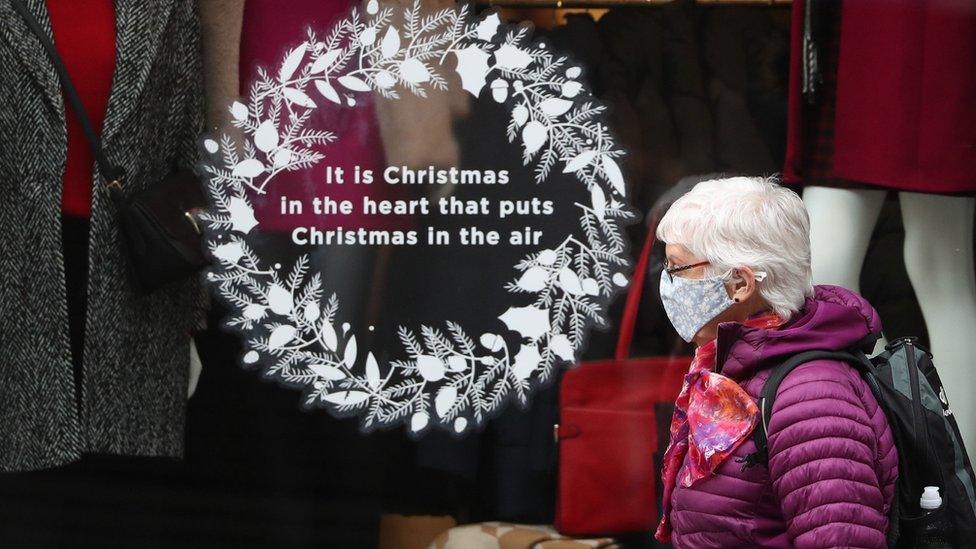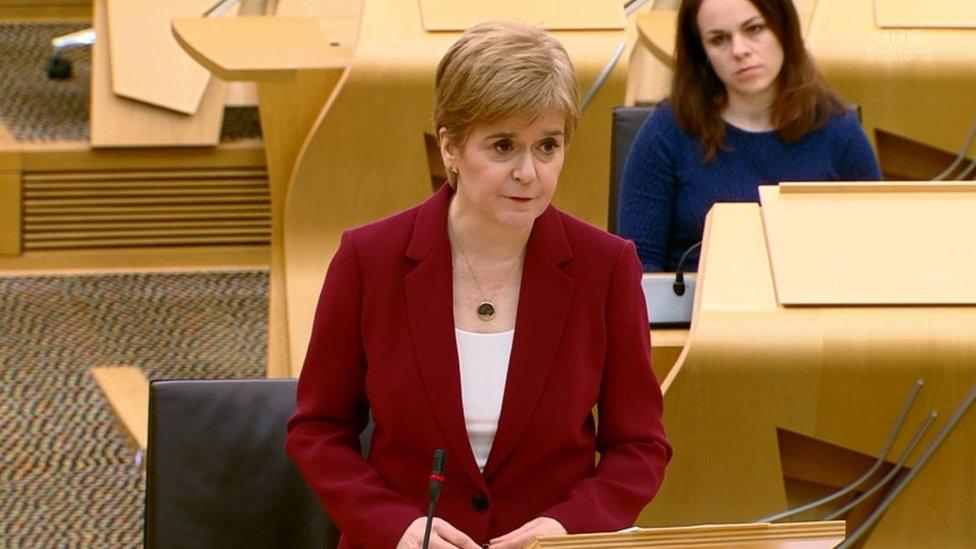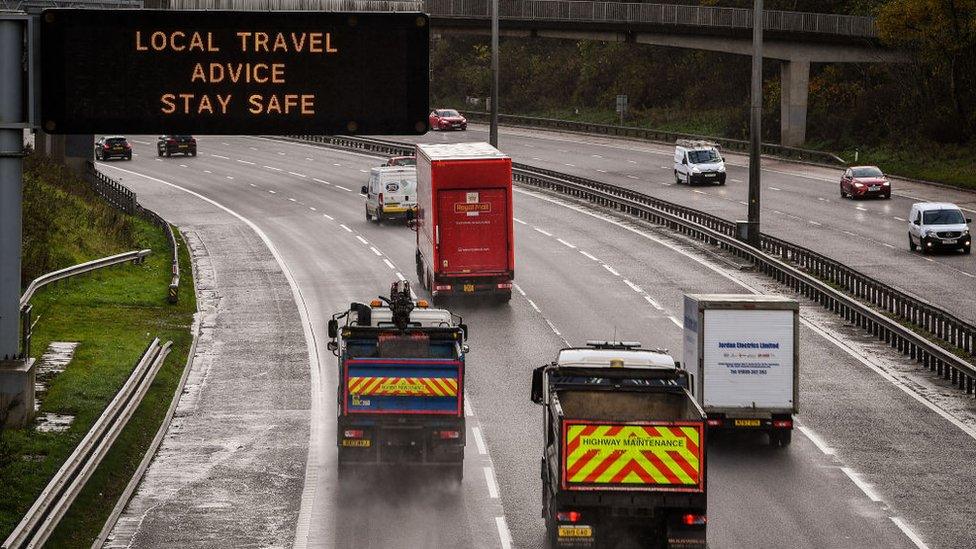Covid in Scotland: 'Difficult balance' over Christmas restrictions
- Published
- comments

Governments across the UK face a "difficult balance" in easing Covid-19 restrictions for Christmas, Scotland's first minister has warned.
Nicola Sturgeon took part in UK-wide talks on Wednesday as part of efforts to find a "sensible and safe plan" to lift restrictions.
Ms Sturgeon said she hoped to be able to announce further details next week.
But she said it was important to ensure it did not cause a spike in the number of cases - and deaths - in January.
About 2.3m people in western and central Scotland are to be subject to the top level of Covid restrictions from 18:00 on Friday in a bid to drive down "stubbornly high" levels of the virus ahead of the festive period.
A survey for BBC Scotland has suggested that many Scots are happy for the government to set "strict rules" to contain the pandemic, but that a majority would also like a break from them over the festive period.
Talks have been held between leaders in Scotland, England, Wales and Northern Ireland to agree a "common approach" to relaxing restrictions to allow family get-togethers.
Ms Sturgeon told the Scottish Parliament on Friday that reducing the number of people who have the virus by Christmas would obviously lower the risk of it being transmitted to others.
At her weekly question session, Ms Sturgeon said officials had been tasked with drawing up a "sensible and safe plan to allow people a greater degree of normality over Christmas", and said she would announce further details next week.
However, she said a balance had to be struck between allowing people some leeway to celebrate together, while avoiding a major spike in the number of cases.
She said: "We are determined to strike the right balance between the understandable desire - which I share - to see family over the Christmas period, but also to do that in a way that does not lead to increased loss of life and harm to health over January."

This echoed a warning from one scientist who advises the government, Prof Andrew Hayward, who said mixing households at Christmas could pose "substantial risks" to older and more vulnerable people.
Scottish Conservative group leader Ruth Davidson pressed Ms Sturgeon for details, asking if "the current restrictions are the price for a relaxation this Christmas", or "if we have to start preparing ourselves now for a January shutdown too".
Ms Sturgeon said it was important to drive down prevalence of the virus in advance of any easing of the rules, saying this would lower the risk of infections spreading when people are allowed to meet.
She added: "I don't underestimate what a difficult balance this will be for all of us to strike. I want people to have a degree of normality over Christmas, but I don't want to be in a position of the country having to live with a death toll that could have been avoidable if we get that balance wrong."
The first minister also said the government was working to provide extra support to older people and "anyone who is on their own" through winter, and was considering a specific "loneliness campaign".

New laws restricting travel in many areas of Scotland are due to come into force on Friday
Meanwhile, Scottish Labour leader Richard Leonard urged the first minister to drop plans to enforce travel restrictions in law.
From 18:00 on Friday the police will be able to impose fines on people who travel in or out of areas which are in level three or four without a reasonable excuse.
Mr Leonard said the move was a "red herring" which would confuse and potentially criminalise people.
He said the government should instead focus on properly resourcing the testing and tracing system and providing comprehensive support for health workers and businesses.
Ms Sturgeon said the rules and exemptions had been published on the Scottish government website, external, adding that it was "absolutely incumbent" on her to "do the right thing" even if it was not popular.
She said "a significant proportion" of the population was moving into the highest level of restrictions, and said "we must avoid taking the virus from high prevalence areas to low prevalence ones".

